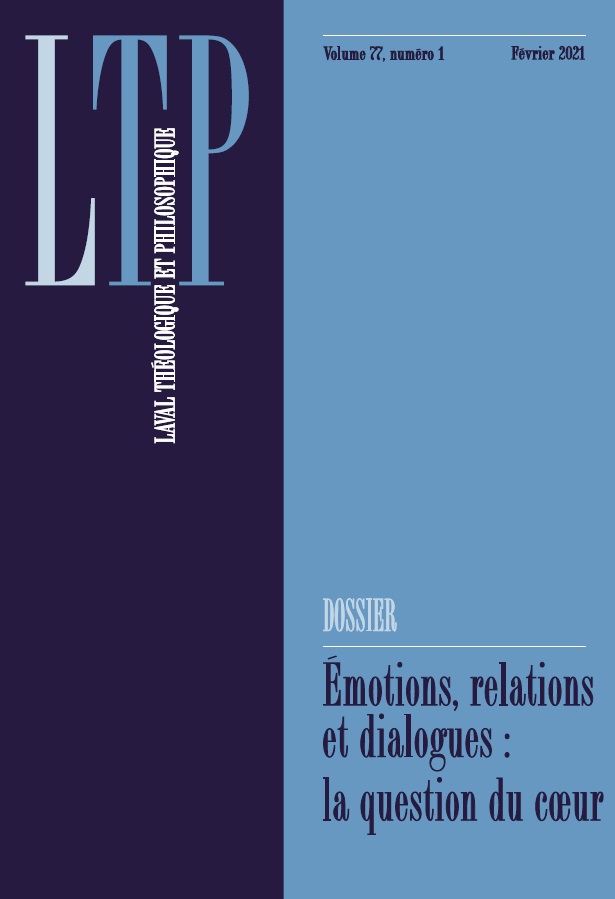Se disposer au dialogue. 'La phénoménologie du coeur' de Stephan Strasser
Abstract
This article analyzes the constitutive elements of what Strasser calls a "dialogal phenomenology" (1969), which is based on a twofold attempt: first, to elaborate a phenomenology of interiority, after the Husserlian and Merleau-Pontian criticism of the Cartesian cogito; 2 / secondly, to take into account the primordiality of affectivity in the constitution of ethics, by means of an archeology of the subject which places the encounter with the other, in the form of a “You”, at the foreground of the emergence of the common world. To carry out this endeavor, Strasser overhauled philosophical anthropology by reintroducing the notion of the “heart” (Gemüt; thumos), conceived as an intermediate zone of metabolization and metaphorization of reality which makes the descriptive method of phenomenology compatible with the normative and universal aim of ethics.

